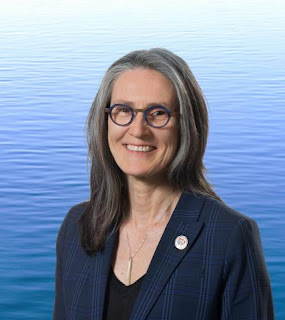Water Security and Equity in a Changing Climate
The International WaTER Symposium is online this year - this Tuesday, Sep 21, 7:00 - 8:30pm
Please RSVP here, and you will be forwarded a Zoom link upon registration:
RSVP
INTERNATIONAL WATER SYMPOSIUM
TUESDAY, SEPTEMBER 21 (via ZOOM)
7:00-7:15 PM Welcome and opening remarks
7:15-7:55 PM Short presentations by jurors on water projects and global water issues
7:55-8:20 PM Question & Answer session with jurors on relevant challenges to water security
8:20-8:28 PM Announcement of the 2022 International Water Prize winner!
8:28-8:30 PM Thank-you and save the date for the next WaTER Conference
SAVE THE DATE
OU International WaTER Conference
September 26-28, 2022 | Norman, OK

Dr. Ana Barros is a South African-born American civil and environmental engineer currently serving as the Department Head of Civil and Environmental Engineering at the University of Illinois. She is an Elected Fellow of the American Association for the Advancement of Science and in 2019 she was elected to the National Academy of Engineering for "contributions to understanding and prediction of precipitation dynamics and flood hazards in mountainous terrains". Ana attended the Faculty of Engineering of the University of O’Porto where she obtained a summa cum laude Diploma in Civil Engineering and a M.Sc. degree in Ocean Engineering in 1988 with a thesis focusing on numerical modeling of sediment transport in estuaries and coastal regions. In 1990, Dr. Barros completed and M.Sc. degree in Environmental Science Engineering at the OHSU/OGI School of Science and Engineering. She earned a Ph.D. in Civil and Environmental Engineering from the University of Washington, Seattle in 1993.

Dr. Aondover Tarhule is the Provost and Vice President for Academic Affairs and for Illinois State University. Prior to this recent appointment, Dr. Tarhule served as Vice Provost and Dean of the Graduate School at Binghamton University, part of the state universities of New York. While at Binghamton, he has facilitated the creation of new degree programs, developed new international partnerships, and implemented several major innovations to data and workflow software.
A physical geographer, Tarhule’s work on climate impacts on water scarcity and security has been featured in National Geographic and Nature. His scholarly research has appeared in prestigious international journals and book chapters. His efforts as principal investigator (PI) or co-PI have resulted in more than $5 million in grants from such agencies as the National Science Foundation, the United States Agency for International Development, the National Institute of Health, and the United States Geological Survey.

Dr. Upmanu Lall is the Director of the Columbia Water Center and the Alan and Carol Silberstein Professor of Engineering, and the Chair of the Dept. of Earth & Environmental Engineering at Columbia University. He has broad interests in hydrology, climate dynamics, water resource systems analysis, risk management and sustainability. Upmanu’s current research covers 3 major initiatives that are developed through the Columbia Water Center. The Global Water Sustainability Initiative addresses global water scarcity and risk. The Global Flood Initiative is motivated by the need to predict, mitigate and manage floods at a global scale recognizing their climate drivers, and supply chain impacts. America's Water seeks to develop sustainable water management and infrastructure design paradigms for the 21st century recognizing the linkages between urban functioning, food, water, energy and climate. These programmatic initiatives are backed by research on systems level modeling of hydrology, climate, agronomy and economics.
These three jurors will be serving alongside the other two jurors, spotlighted in a previous blog - Merrell-Ann Phare and Callist Tindimugaya. The five panelists are eminently qualified to select the next recipient of the OU International WaTER Prize!















